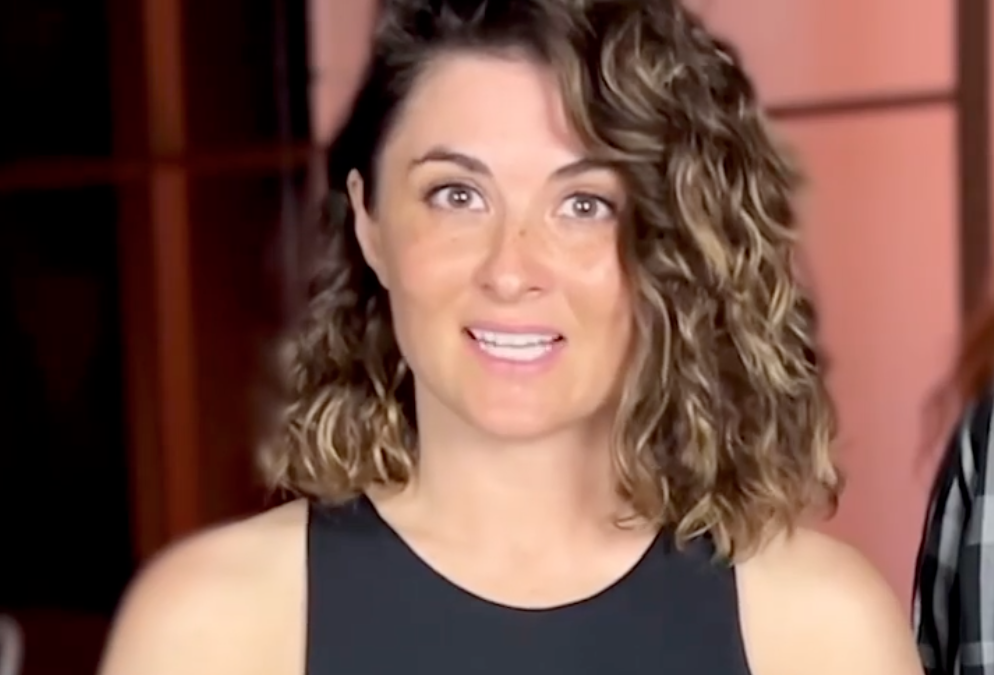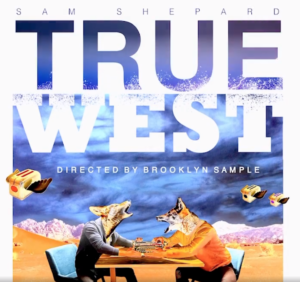by Steve Peterson
Brooklyn, when did you first get interested in theater?
I began my love of theater after I was one of five cast in our 5th-grade production of “Small World”. It was specifically for elementary schools, no big production or anything, but I realized how much I loved to tell stories and entertain. From then on I was hooked.
In terms of theater, which stage plays have you previously directed and how did those opportunities come about?
I directed my first play back in 2011. It was a play I had written called, “Keep Me.” A theater I had recently become involved in had a slot opened in their season so I pitched the script to them and they agreed to produce it and trusted me with the direction. I went on to direct “Murder at the Howard Johnson’s”, as well as co- create/write/direct/act in the sketch comedy troupe, “Deep Fried Comedy.” I worked that for two seasons, however, it went on for 4 more years after I left. My work partner directs musicals, so I ended up co-directing “Godspell” as well as assisting her with “Mamma Mia!”. We also directed and Produced a Holiday show and Gala. I’ve also been asked to come in and help clean up shows toward the end of rehearsals. All of this was brought on through connections I have with peers who have seen my work or who I have worked with directly.
What is it about Sam Shepard’s work that drew you to his writing and this play in particular?
I had the privilege of studying at the American Academy of Dramatic Arts here in Los Angeles. My grad play was Sam Shepard’s, “Lie of the Mind” where I played Sally. It is such a gritty play with strong familial struggles mixed with a sense of surrealism and humor. All of the things as an artist I could chew on. It tapped into some of my own family disfunction that I could somewhat relate to and it felt really important to tell his stories. Being that “True West” is a male dominant play, I had always seen scenes done in class, but I never thought I had a creative place in that particular show. So when a fellow member at The Group Rep, William Wilson, and I spoke extensively about our love for Sam’s work we knew we had to do something. This was a dream role for him and after finding out my deep admiration for the work, he asked if I would direct it. It seemed like the perfect time. We had just started coming out of the pandemic, kind of. Society had been cooped up, isolated in some instances with our only connection to the outside world through movies or social media. It was hard to believe what was real anymore and I think a lot of people were questioning what they had been doing with their lives before the Pandemic hit. The mundane existence and buying into the lies that are fed to us about what happiness is. This play deals with a lot of the same themes, even though it was written forty years ago.
What do you want an audience member to take away from the experience of seeing this production of TRUE WEST?
A reflection of the lies that they tell themselves in an effort to attain happiness and success. I think you also have to consider the cyclical nature of your life. The things you know you should change for your own growth but can’t because you don’t know how. While it may not be Hollywood that influences us as a society as much, it definitely is a problem through social media. How are you being lied to? Everyone’s life seems perfect and happy but that is all an image and honestly not real life. We only see the best of their life or even made-up life and therefore feel we are failing. So I think what was true when this was produced in the early 80s is still ringing true today.
I understand that several of the production team members happen to be women? Was that intentional, or did it work out that way? Was there an advantage to having women involved in the production?
With a play dripping with toxic masculinity it was important for me to surround myself with women in an effort to provide some softness to the overall aesthetic. My producer, assistant director, stage manager, and assistant stage manager are all women. Sometimes productions of this play really run with the sinister, crazy Lee or the nerdy, weak Austin. It was important to me and the actors that we not fall into these stereotypes, that’s the easy choice. We wanted them to be three dimensional, likable characters who are unsuccessfully navigating life. It was also important to me that the mother’s home was very feminine so that when they destroy it through their toxic masculinity, the audience subconsciously feels that. What that kind of energy does to the nurturing a woman can try to build. Having all of us women there to project that nurturing onto the shaping of the characters really guided them from wanting to yell throughout to earning the outbursts. It makes their journey much more interesting and impactful. More emotional.
You are married with three children. How do you balance your family life with your career?
It is a challenge. I have a busy but supportive husband and we work as a team. It has been easier with my two oldest being teenagers now who require less of my attention. I have my day scheduled out to the minute and I am still their taxi, but it opens me up to be more flexible. I work all day, mom in the afternoon, and finish up on work at night. I also have a work partner, Melanie Lee, who I have worked with for over ten years now. We delegate out our workload which makes it much more manageable. Most importantly, I have learned when to say no. That’s something that took me a long time to have the confidence to say because ultimately, I am a mom first. I keep creating to stay sane for them and myself.
You’ve acted, produced, and directed. Do you prefer any one of those creative over the others? And, if so, why?
Acting is my first love. I got into directing because after having children I could only work on projects that were on my schedule. However, after directing my first show I realized that all of my actor training made me a better director. Not to mention that I was able to compose the tempo of the pieces how I saw them, staying true to the author’s intent of course. When you are tasked with the overall big picture, your sense of responsibility to the material becomes greater. I love that I have the opportunity to be that steward. I only recently began producing for theater. I began that because I have a creative-producing background in television. Melanie and my production company, Blind Toe, produce new developments in an effort to prepare for a sale to larger companies. We also have a podcast we put out once a week called, Moms Art Too. All of that experience as well as sitting on 3 different Theater’s Board of Directors has helped with the overall understanding of what it takes to produce great stories. I have a background in script writing as well so I can understand the playwright’s structure, character development, and plot points. This is why directing is my ultimate creative device. I can switch between all of my hats which leads to a thoughtful project for the audience and a successful one at the box office.
Is there anything else you want us to know about you or the production of TRUE WEST currently running Upstairs at the Group Rep, on the second floor of the Lonny Chapman Theatre through May 8th?
It is a rollercoaster ride. The actors, William Wilson, James Lemire, Jason Madera, and Clara Rodriguez put it all out there, every night. I still cry in parts and clutch my chest in others. These folks are top-notch storytellers at the highest level and I am absolutely honored to have had the opportunity to guide them. I am also forever grateful to GRT for entrusting me with such a bold and necessary project.
Brooklyn Sample is the director of the well-received production of Sam Shepard’s TRUE WEST running Upstairs at The Group Rep, 10900 Burbank Blvd., NoHo 91601, through May 8th. Tickets available here.
# # #



Recent Comments